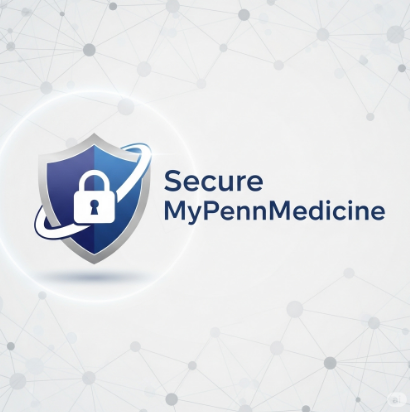Wow, I had no idea how much Secure MyPennMedicine would assist until I utilized it. It was late at night when I was sitting on my couch, wondering if I had remembered all of my appointments and medications, when I suddenly recalled the gateway. Everything was present when I logged in, including test results, records, and a way to communicate my doctor without calling. It was really simple to use, however I briefly worried when I unintentionally clicked something. To be honest, I felt a little more in control and less anxious having everything in one secure location. Anyone else managing health issues might be thinking, “At last, something that just works.” I was spared a great deal of needless anxiety thanks to Secure MyPennMedicine.
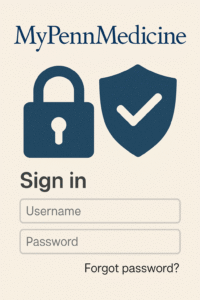
What Is MyPennMedicine?
Through the user-friendly online platform MyPennMedicine, Penn Medicine patients can view their medical records from any location at any time. The site makes it easy to stay in touch with your healthcare team, whether you want to ask your provider a question, seek a prescription refill, or check test results.
However, security must be guaranteed when such private data is accessible, and Penn Medicine has made this a primary concern.
Why Security Matters in Patient Portals
One of the most sensitive pieces of information a person can possess is healthcare data. In addition to your medical history, it contains your entire name, birthdate, contact information, insurance information, and potentially even financial information. Because of this, safeguarding it is important for both privacy and identity protection.
A secure patient portal is crucial given the increase in cyberthreats and data breaches in the healthcare sector. Penn Medicine is aware of this obligation and has put in place cutting-edge procedures and technologies to guarantee that MyPennMedicine is a secure environment for patients.
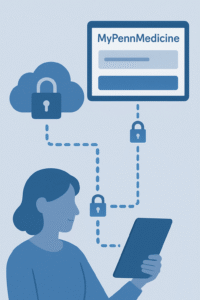
Key Security Features of MyPennMedicine
MyPennMedicine safeguards your information in the following ways:
- Secure Login System: A distinct username and password combination safeguards access to your portal.
- When enabled, two-factor authentication (2FA) adds an extra degree of security by sending you a one-time code via email or text message each time you log in.
- Data encryption makes it nearly hard for hackers to intercept any information that is sent between your device and the portal.
- Automatic Logouts: To avoid unwanted access, the system automatically logs you out if your session is inactive for a while.
- HIPAA Compliance: Your personal health information is handled with the highest privacy and security standards since MyPennMedicine conforms with all federal HIPAA rules.
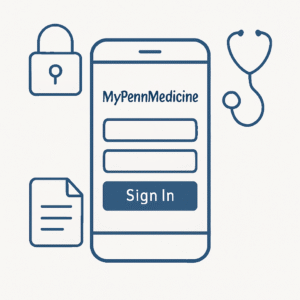
How to Keep Your MyPennMedicine Account Secure
You have a part to play even though Penn Medicine takes significant precautions to protect your data. The following advice will help keep your account safe:
- Make a Secure Password: Make use of a variety of symbols, numbers, and letters. Don’t use common terms, names, or birthdays.
- Turn on Two-Step Verification: This easy configuration, which only takes a few seconds to activate, significantly increases your security.
- Steer clear of public Wi-Fi: Avoid using unprotected networks, such as those found in coffee shops or airports, to access your MyPennMedicine account.
- Log Out When You’re Done: Especially while using shared or public devices, always remember to log out entirely.
- Update Your Information: To ensure that you receive alerts and links to reset your password promptly, make sure your phone number and email address are up to date.
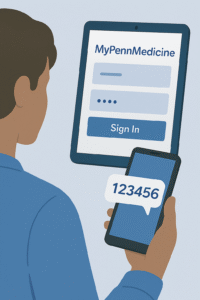
What to Do If You Suspect Unauthorized Access
Take immediate action if you observe any questionable behavior on your MyPennMedicine account, such as strange test results, newly scheduled appointments, or profile modifications:
- Immediately reset your password.
- Examine your past login history, if it exists.
- For help, contact MyPennMedicine Support via the site or by calling 866-614-7606.
Prompt action can guarantee that your records stay private and stop account abuse.
Using the Mobile App Securely
With a few extra capabilities, the MyPennMedicine mobile app, which is powered by MyChart, is equally as safe as the desktop version:
- Biometric Login: For a quick and safe login process, use Face ID or fingerprint scanning.
- App-Specific PIN Codes: For extra security, set up a 4-digit PIN.
- Push Notifications: Receive immediate notifications from your provider on test results, appointment modifications, or messages.
As always, don’t leave your phone unattended and keep it safe with a lock screen.
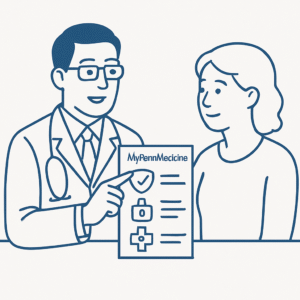
Conclusion
Security and trust are important when it comes to your health. MyPennMedicine provides a practical approach to care management, supported by advanced security measures and easy-to-use tools. You can confidently handle your medical life online by combining Penn Medicine’s safeguards with wise personal practices.
So go ahead and use MyPennMedicine to safely log in, keep informed, and take charge of your medical journey.
Read More: MyPennMedicine Payment
Common FAQs
How safe is MyPennMedicine?
Indeed! To protect your information, it employs stringent privacy policies, two-step login, and sophisticated encryption.
What happens if my password is forgotten?
Don’t worry, you can simply reset it using your phone number or email address online or using the app.
How can two-step verification be enabled?
Simply enable it in your account settings; upon login in, you will receive a code via email or text.
Can my records be viewed by another person?
Only when you grant them access via a proxy. Your account is private otherwise.
How should I respond if I notice an oddity in my account?
As soon as possible, change your password and get assistance from MyPennMedicine support.
Is the website as safe as the mobile app?
Of course. For further security, you may also use Face ID or fingerprint authentication.
Is it possible to use public Wi-Fi with MyPennMedicine?
It is safest to stay away from it. Whenever feasible, use a secure, private connection.
What would happen if my phone disappeared?
To temporarily lock your account, try logging in from a different device, changing your password, or contacting support.
How frequently should my password be changed?
It’s a good idea to utilize something strong and different every few months.
If I need assistance, who can I call?
MyPennMedicine assistance is available at 866-614-7606; they are kind and willing to assist you!

